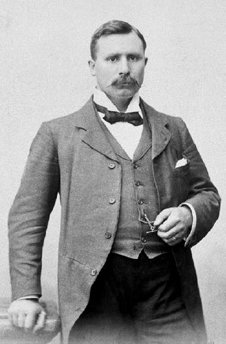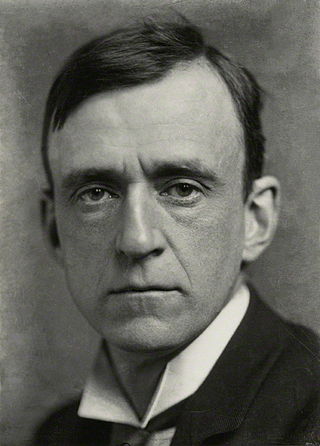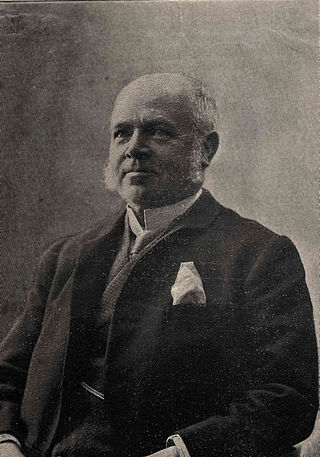
Samuel Smiles was a British author and government reformer. Although he campaigned on a Chartist platform, he promoted the idea that more progress would come from new attitudes than from new laws. His primary work, Self-Help (1859), promoted thrift and claimed that poverty was caused largely by irresponsible habits, while also attacking materialism and laissez-faire government. It has been called "the bible of mid-Victorian liberalism" and had lasting effects on British political thought.

Thomas Mann, was an English trade unionist and is widely recognised as a leading, pioneering figure for the early labour movement in Britain. Largely self-educated, Mann became a successful organiser and a popular public speaker in the British labour movement.

Joseph Wolf was a German artist who specialized in natural history illustration. He moved to the British Museum in 1848 and became the preferred illustrator for explorers and naturalists including David Livingstone, Alfred Russel Wallace and Henry Walter Bates. Wolf depicted animals accurately in lifelike postures and is considered one of the great pioneers of wildlife art. Sir Edwin Landseer thought him "...without exception, the best all-round animal artist who ever lived".

John Walter III was an English newspaper publisher and Liberal politician who sat in the House of Commons variously between 1847 and 1885.

The Society for Promoting Christian Knowledge (SPCK) is a UK-based Christian charity. Founded in 1698 by Thomas Bray, it has worked for over 300 years to increase awareness of the Christian faith in the UK and worldwide.
Owenism is the utopian socialist philosophy of 19th-century social reformer Robert Owen and his followers and successors, who are known as Owenites. Owenism aimed for radical reform of society and is considered a forerunner of the cooperative movement. The Owenite movement undertook several experiments in the establishment of utopian communities organized according to communitarian and cooperative principles. One of the best known of these efforts, which was unsuccessful, was the project at New Harmony, Indiana, which started in 1825 and was abandoned by 1827. Owenism is also closely associated with the development of the British trade union movement, and with the spread of the Mechanics' Institute movement.

For the historic house in Essex called Langley's, see Great Waltham.

Kingsley Ogilvie Fairbridge was the founder of a child emigration scheme from Britain to its colonies and the Fairbridge Schools. His life work was the founding of the "Society for the Furtherance of Child Emigration to the Colonies", which was afterwards incorporated as the "Child Emigration Society" and ultimately the "Fairbridge Society".

Henry Tonks, FRCS was a British surgeon and later draughtsman and painter of figure subjects, chiefly interiors, and a caricaturist. He became an influential art teacher.

Sir William Dunn, 1st Baronet,, was a London banker, merchant and philanthropist, Liberal Member of Parliament for Paisley (1891–1906), and from before 1896 until the outbreak of the Second Boer War in 1899 consul general for the Orange Free State in the United Kingdom.
The Reich Association of Jews in Germany, also called the new one for clear differentiation, was a Jewish umbrella organisation formed in Nazi Germany in February 1939. The Association branched out from the Reich Representation of German Jews established in September 1933. The new Association was an administrative body concerned predominantly with the coordination and support of the emigration and forcible deportation of Jewish people, subject to the Reich government's ever-changing legislation enforced by the RSHA (Reichssicherheitshauptamt). The legal status of the new organisation was changed on 4 July 1939 on the basis of the Nuremberg Laws, and defined by the 10th Regulation to the Citizenship Law issued by the Reich's ministry of the Interior. The Association assumed the so-called oldReichsvereinigung der Juden in Deutschland, which was the name under which the Reichsvertretung der Deutschen Juden had been operating since February 1939.

John William North was a British landscape painter and illustrator, a prominent member of the Idyllists.

Louisa Maria Hubbard was an English feminist social reformer and writer. She is best known for her activism for increased opportunities for women's education and employment.
David Charles Walter, was a British journalist and a former Political Correspondent for Independent Television News programmes on ITV from 1980 to 1986, then on ITN's Channel 4 News from 1986 to 1988, followed by Paris Correspondent for BBC News, a BBC television and radio producer and presenter, and a Liberal Democrat contender for a seat in the British Parliament. He was a direct descendant of John Walter, the founder of The Times newspaper, whilst his mother was a cousin of former Home Secretary William Whitelaw.

Hazell, Watson and Viney was an English printing and publishing firm with works in Aylesbury that operated from 1839 to c. 1991.
Reverend Lord Archibald Edward Douglas (1850–1938) was the son of Archibald Douglas, 8th Marquess of Queensberry and his wife Caroline Margaret Clayton, daughter of General Sir William Clayton, 5th Baronet (1786–1866). Reverend Lord Archibald Douglas was a Roman Catholic priest who arranged the emigration of children to Canada as part of the child migration movement, whose stated goal was to place these children on farms, in sparsely settled parts of the world where they would receive training, and be able to start farms of their own. The movement was controversial from its inception, being accused of forcing the children to emigrate, of breaking up families, and of placing the children in a situation hardly different from slavery. Douglas sent children to the Ottawa area, to Manitoba, and into Quebec.

Walter William Law was a businessman and the founder of the 8,000-person village of Briarcliff Manor, New York. He was a vice president of furniture and carpet retailer W. & J. Sloane, and later founded the Briarcliff Lodge, the Briarcliff Table Water Company, Briarcliff Farms, and the Briarcliff Greenhouses. He founded or assisted in establishing several schools, churches, and parks in the village, and rebuilt its train station in 1906. In the early 1900s, Walter Law was the largest individual landholder in Westchester County.

Denys Rolle was a British politician and landowner who was an independent member of parliament for Barnstaple between 1761 and 1774. He inherited a large number of estates and by the time of his death he was the largest landowner in Devon. He was a philanthropist and generous benefactor to charities and religious societies.

Frank Newman Turner, NDA, NDD, FNIMH, was a British pioneering organic farmer, writer and broadcaster, who, based on his experience of natural treatment of animals, later became a consulting medical herbalist and naturopath. His books Fertility Farming, Fertility Pastures, and Herdsmanship are regarded as classics of practical organic husbandry.
The forerunner of the Working For Gardeners Association was created in 1899. It has had various names including the Women's Farm and Garden Society (WFGS) and the Women's Farm and Garden Union (WFGU). Its original objective was to improve the employment opportunities for women working on the land. During the First World War, it created the Women's National Land Service Corps (WNLSC) in 1916 and recruited 2,000 volunteers. At the WNLSC's suggestion, the government created the Women's Land Army. In 1920, the WFGU was concerned that after the war, women were not being offered the help that men were. It created a cooperative set of small holdings for women in Surrey. During the Second World War, it organised training. The charity organised training courses for both women and men in 2020 under its new working name of the Working For Gardeners Association.














